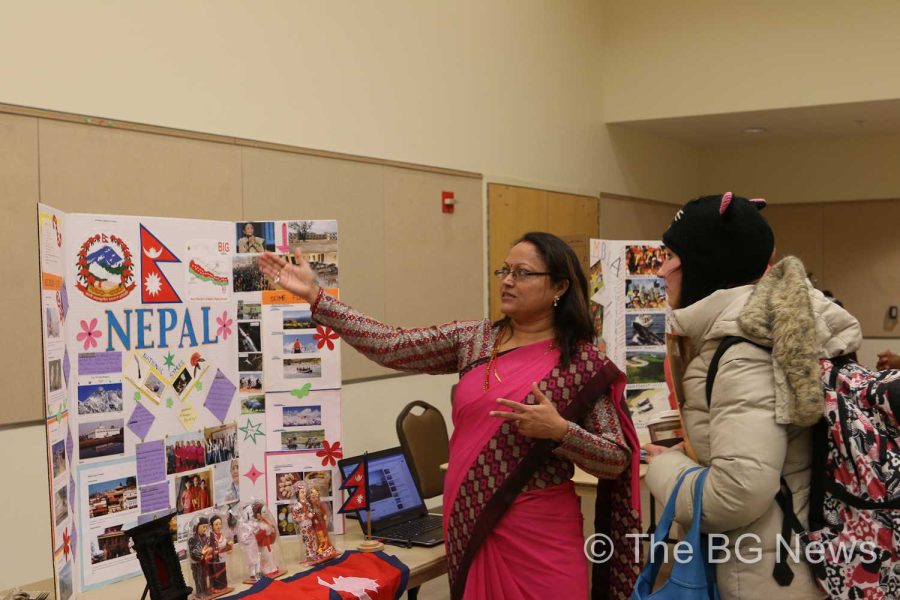“Akwaba.” In English it may look like a jumble of letters, but in Cote d’Ivoire, which is the Ivory Coast, the word means welcome.
Amongst a group of people from 17 different countries, the word was everywhere.
On Monday, the International Democratic Education Institute, the Office of Multicultural Affairs and the Northwest Ohio World Affairs Council co-hosted an event welcoming 17 English teachers from different countries to the University to discuss the importance of education in other cultures. Each speaker, a fellow of the Teaching Excellence and Achievement program, spoke about their homelands.
The countries varied from Algeria to Yemen, from Ukraine to Iraq. The fellows all welcomed listeners and told them stories of their countries and answered questions.
Christopher Frey, an assistant professor in the college of education and co-director of the program, and Krishna Han, an assistant directory for the diversity education program and a member of the Office of Multicultural Affairs, said this was an important event for the University and the community.
“My main focus is building ambassadors,” Han said. “I hope that when these teachers return to their home countries they tell their students and their friends and family that America is not what they thought.”
He said he hopes both the teachers and the event attendees will gain a more positive outlook on other countries.
“I like that people really meet people,” Han said. “Like when you hear about Iraq [in the news], it’s less of a negative thought and instead more like ‘I know someone from Iraq.’”
Many of the teachers said this program was an opportunity for them to experience a new culture and to help others learn about their culture.
One woman, Ossoko Tro, from Cote d’Ivoire had a small hollowed gourd on her table and shared its importance.
“In my country, this is a bowl from which we drink water,” Tro said. “It is also a symbol of hospitality.”
Tro said when there is a guest, it is customary in her country to offer them a guard as a sign of welcome. She also said the gourds come in larger sizes and are used for soaking rice and making food.
The national language of Cote d’Ivoire is French, but Tro said she speaks to her students only in English.
“I cannot express the feeling I have when the students use English for a specific purpose,” Tro said. “It is good practice for them when they use it outside of the classroom.”
Habiba Mohammed, from Nigeria, said her classroom was much different than the classrooms here in the United States.
“We have over-population in our classes,” Mohammed said. “And most of the students that actually have a desk, don’t have writing material or reading materials.”
Mohammed also said that there are less opportunities for teachers, like herself, to take part in educational programs. However, she said she did not feel that disadvantaged.
“The little I know and the little I am getting from the media, I am becoming better,” Mohammed said.














